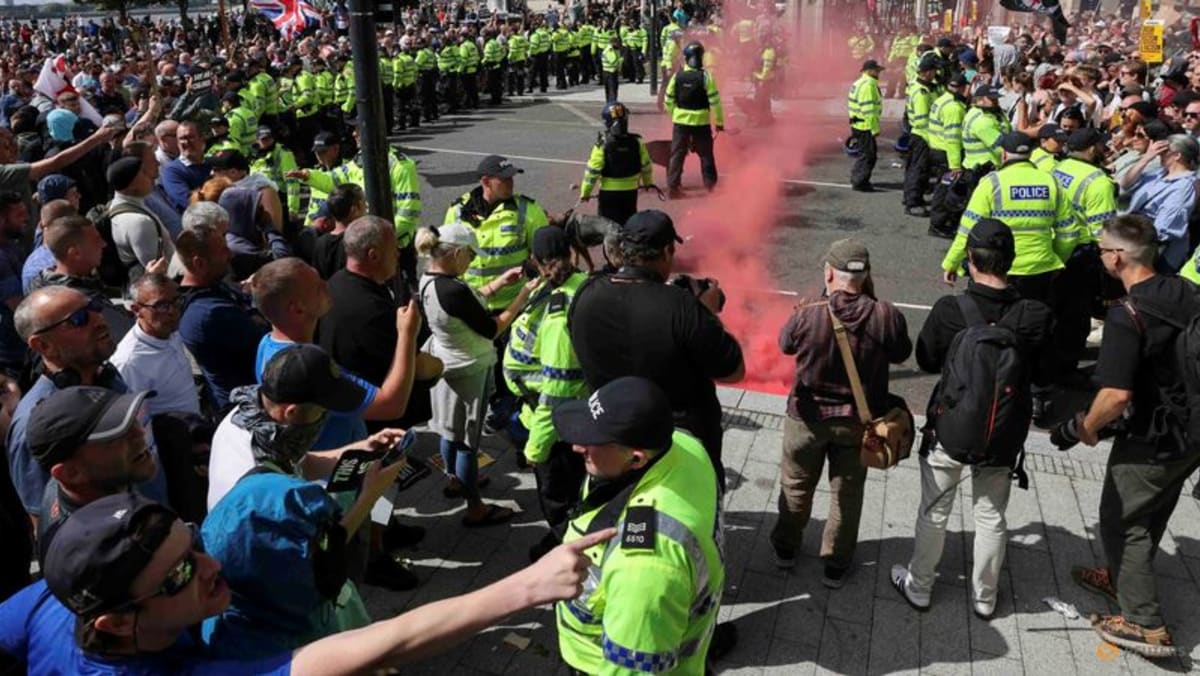The protests were fuelled by false rumours on social media about the background of British-born 17-year-old suspect Axel Rudakubana, charged with several counts of murder and attempted murder over the attack at a Taylor Swift-themed dance party.
Rudakubana is accused of killing Bebe King, six, Elsie Dot Stancombe, seven, and Alice Dasilva Aguiar, nine, and injuring another 10 people.
Police have blamed the violence on supporters and associated organisations of the English Defence League, an anti-Islam organisation founded 15 years ago whose supporters have been linked to football hooliganism.
Agitators have targeted mosques in Southport and in the northeastern English city of Sunderland, leading to hundreds of Islamic centres to bolster security amid fears for its worshippers’ safety.
The rallies have been advertised on far-right social media channels under the banner “Enough is enough”.
They have seen protesters waving English and British flags while chanting slogans like “Stop the boats” – a reference to irregular migrants travelling to Britain from France.
Anti-fascist demonstrators held counter-rallies in many cities, including Leeds where they shouted, “Nazi scum off our streets”, as the far-right protesters chanted, “you’re not English any more”.
Not all of Saturday’s estimated 30 gatherings turned violent and some participants claimed to have legitimate grievances.
“People are fed up with being told you should be ashamed if you’re white and working class but I’m proud white working class,” 41-year-old Karina, who did not give her surname, told AFP in Nottingham.
Commentators have suggested that the demonstrators, spurred on by online influencers, may feel emboldened by the political ascendancy of anti-immigration elements in British politics.
At last month’s election, the Reform UK party captured 14 per cent of the vote – one of the largest vote shares for a far-right British party.
Starmer has accused “thugs” of “hijacking” the nation’s grief to “sow hatred” and has announced new measures to allow the sharing of intelligence, wider deployment of facial-recognition technology and criminal behaviour orders to restrict troublemakers from travelling.
Policing minister Johnson said the government will do “whatever it takes” to ensure people are brought to justice, including the possibility of courts sitting overnight as they did during the riots in 2011.


